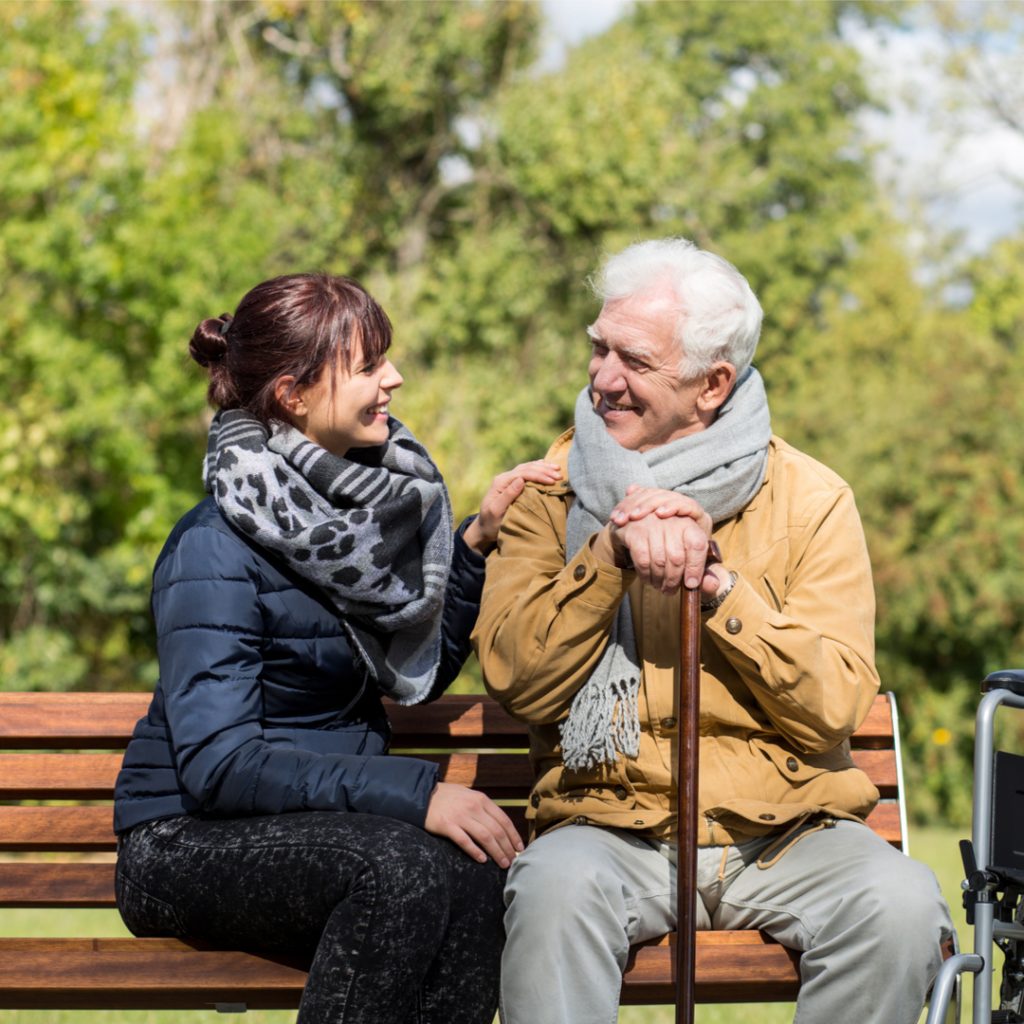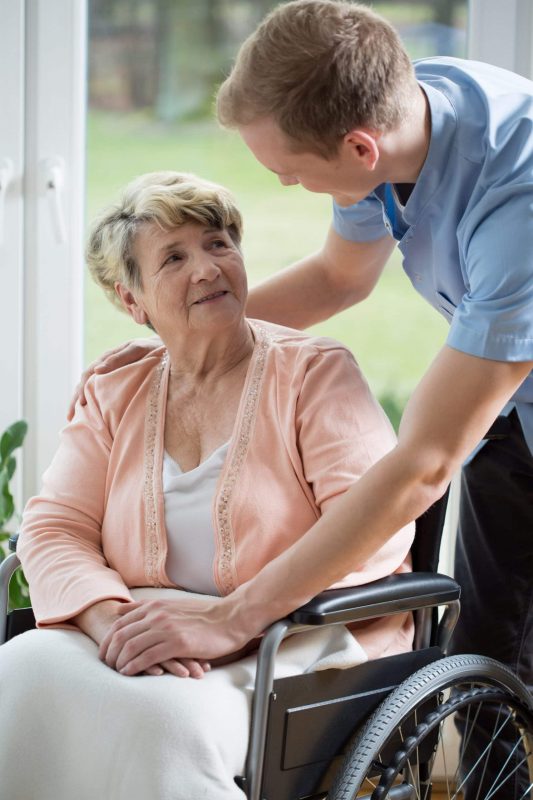What is personal care?
Personal care is the term used to describe the support given to an individual who needs help with personal care and hygiene. Typically, it involves:
• Help with dressing
• Bathing or showering
• Assistance with mobility
• Support with managing incontinence
• Assistance with nutrition and eating
• Administering or support with medication
Your personal care plan should be person-centred. It will take account of your routine, your likes and dislikes, the preferred products you want to use and who you would feel most comfortable with caring for you. Your preferences are recorded in your care plan and each carer is expertly trained to provide compassionate care that is discreet and respectful.
What are personal care needs?
Everybody’s personal care needs are different. As with all home care support, personal care considers not just an individual’s needs but their wishes too. If you’re an early riser, that’s fine. Your carers will know this and schedule an earlier appointment with you. Likewise, if you prefer to lay in, that’s fine too.
The important thing is that you are given the independence and freedom to live well and that you do not feel restricted by your personal care needs.
Some people with personal care needs may require help with dressing, bathing, and showering, whilst others may just need support with applying cream and administering medication.
To determine what your needs are, a care plan is drawn up – together with you and a family member (if you wish). It can be a very liberating experience for many and help make life that much easier!
What is a personal care plan?
A personal care plan should be person-centred. This means that the wishes and needs of the person being cared for remain at the centre of care.
As the person being cared for, a personal care plan covers important information about you. It details any medical needs and how these are managed, personal care needs (elements you need help with) and, just as importantly, information about your likes, dislikes, and interests.
A personal care plan is prepared following an assessment of need, which is reviewed at agreed-intervals or at your request, or that of your carer.
If you wish, family members are also involved in the care planning process and any future discussions regarding your care.
We find that for daughters, sons, grandchildren, partners and friends, a clear personal care plan also instils confidence that you’ll be receiving the care you need.
What are the benefits of personal care?
There are many benefits to receiving personal care at home. The most important one is that it will help you feel more comfortable and enable you to live well at home. With help – of your choosing – from a friendly professional home carer, your personalised personal care plan should allow you to live as you would like to, just with a little extra help.
Personal care takes away many of the challenges people face when living at home – especially if they are living alone. One of the many benefits of personal care in the home is that it promotes independence and allows you to choose when you get up, eat, sleep, bath and so much more.
Your personal carer will be carefully chosen for you, taking into account your personal care preferences and what your interests are. After all, good personal care is so much more than just the practical – it also offers companionship.
Do you have to pay for personal care?
Whether you must pay for personal care will depend on several factors regarding:
• The level of help and support that you need
• Your health and mobility
• The value of your assets
Your local authority may pay some or all the costs, but you may have to pay for personal care services yourself.
We can put you in touch with the local authority’s Adult and Community Services (ACS) team who will arrange and carry out a financial assessment. During this process, you will be assessed to see how much you can afford to pay towards the cost of services; and whether your care needs could be met by the local authority.
Where you have eligibility needs, you may be given a sum of money (personal budget) to purchase and organise your own care. Nayland Care can help you decide how best to spend your allocated personal budget to meet your care needs.
There are other options too. If your care needs meet certain criteria, you might be eligible for NHS funding or if you are over 65 and need help with personal care tasks, you may be able to claim Attendance Allowance. Likewise, if you’re under 65, you may be able to claim Personal Independence Payment (PIP).
The other option is privately funded services, which for many, is a much better option than residential care.
What is a personal care assistant?
In terms of care at home, personal care assistants support people to live independently within their own homes. They are usually directly employed by one employer or may work independently for several different people. As a care at home Suffolk agency, all our home carers are employed by us and fully trained to deliver the following types of private care at home:
• Assistance with dressing, bathing and showering
• Help with mobility
• Support with nutrition and eating
• Help in managing incontinence
• Administering or support with medication
• Companionship care
At Nayland Care, all our personal carers are trained to deliver person-centred care. This means that the personal carer supports an individual according to their needs and wishes to live independently at home.
In providing private care at home in Essex and Suffolk, our personal care assistants are kind, compassionate, and most importantly, experienced and fully trained. After all, it is the role of a personal care assistant to deliver care in a way that meets the needs of the individual. Therefore, the recruitment process of personal care assistants or personal carers is quite a rigorous one. Not only are all the relevant DBS checks and employment checks carried out, but they must also have just the right caring nature and character to be a good carer.
How can having personal care support promote independence?
Depending on a person’s medical and care needs, they may not be able to live at home without support. Having private care at home in the form of a personal carer can make a big difference in living safely and independently at home, especially when the alternative options may be residential care.
At Nayland Care, we encourage independence. Rather than taking over daily activities, we support people to make choices themselves. We are respectful of keeping to the routines that matter to our clients and proactively support them to play an active role in telling us what they would like to wear and eat etc… This is what person-centred private at home care is all about.
Personal care plans should encourage an individual to do as much as they are able to while tending to their overall wellbeing. Care should promote as much choice and flexibility as possible.
Why is personal care important?
Everyone, whether young or old, should try and have a healthy relationship with their body. That’s why personal care is particularly important. If we look after our bodies, it can have a tremendously positive impact on how we feel and live.
Essentially, personal care refers to any activity you or someone else does to help you care for your body. This could be any number of things, including (but not limited to) bathing, washing, shaving, teeth brushing, nail and foot care, incontinence management, toileting (including catheter/stoma care), dressing, bed making/changing and laundry.
When a person’s personal care needs are taken care of, they feel refreshed, positive, happier and less burdened by their care needs.
Having a private at home care visit to help tend to personal care needs can be hugely beneficial to a person’s mental and physical health. Having a suitable personal care routine helps reduce the spread of illness and can also help ensure a person stays on top of their medication if they are unable to do so themselves. This can also be a huge relief to relatives who may not be able to help a loved one.












